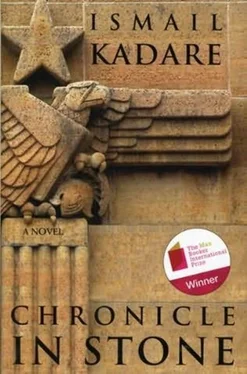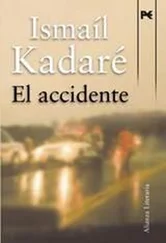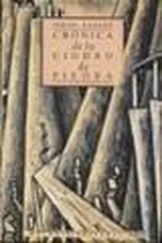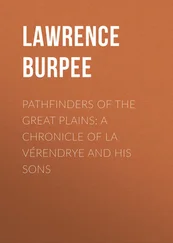Ismaíl Kadaré - Chronicle in Stone
Здесь есть возможность читать онлайн «Ismaíl Kadaré - Chronicle in Stone» весь текст электронной книги совершенно бесплатно (целиком полную версию без сокращений). В некоторых случаях можно слушать аудио, скачать через торрент в формате fb2 и присутствует краткое содержание. Жанр: Современная проза, на английском языке. Описание произведения, (предисловие) а так же отзывы посетителей доступны на портале библиотеки ЛибКат.
- Название:Chronicle in Stone
- Автор:
- Жанр:
- Год:неизвестен
- ISBN:нет данных
- Рейтинг книги:4 / 5. Голосов: 1
-
Избранное:Добавить в избранное
- Отзывы:
-
Ваша оценка:
- 80
- 1
- 2
- 3
- 4
- 5
Chronicle in Stone: краткое содержание, описание и аннотация
Предлагаем к чтению аннотацию, описание, краткое содержание или предисловие (зависит от того, что написал сам автор книги «Chronicle in Stone»). Если вы не нашли необходимую информацию о книге — напишите в комментариях, мы постараемся отыскать её.
Chronicle in Stone — читать онлайн бесплатно полную книгу (весь текст) целиком
Ниже представлен текст книги, разбитый по страницам. Система сохранения места последней прочитанной страницы, позволяет с удобством читать онлайн бесплатно книгу «Chronicle in Stone», без необходимости каждый раз заново искать на чём Вы остановились. Поставьте закладку, и сможете в любой момент перейти на страницу, на которой закончили чтение.
Интервал:
Закладка:
The old crones gave very sober advice about the practice of witchcraft. They suggested that outbreaks of magic usually occurred on the eve of great events, when people’s spirits flutter like leaves before a storm.
Many questions remained, including the most important: who were the practitioners of witchcraft? But people didn’t simply ask questions, they also took steps. Aqif Kashahu’s boys stood guard day and night, in shifts, hiding in a dormer window. Kako Pino, who in her capacity as make-up woman for the city’s brides was one of the most vulnerable targets of magic, bought a huge wolf-like dog and let it run loose in her yard.
Mane Voco brought his ancient rifle, a relic from the days of Turkish rule, up from the cellar and he kept it to hand, hanging on a nail behind the door. The mayor’s office posted an extra guard in the city cemetery.
People took certain other precautionary measures too. Housewives kept the ash from the fireplace in the cupboard, under lock and key, as if it was flour. Men leaving the barbershop carried their clipped hair and shavings wrapped up in a rag or a piece of newspaper. These precautions seemed to stem the flow of sorcery. The ordinary concerns of daily life, which had disappeared from conversation because of the magic, began to crop up again. Some sense of security and tranquillity returned. But it didn’t last. Just when it seemed that the evil spells had gone for good, they attacked again with unexpected fury. Their return was signalled by the explosion of a sealed barrel of cheese, which made a terrific noise when it blew up in the middle of the night at the house of Avdo Babaramo, the former gunner. In response to this new outbreak of witchcraft, the mayor’s office posted notices around the city urging people to help apprehend those responsible. But this didn’t work. Murky misdeeds went on being done. One night someone smiled at Aqif Kashahu’s wife from a dormer window, making a come-hither gesture. After the explosion of the cheese barrel, Avdo Babaramo’s elder son, so it was said, became estranged from his wife. But it was the third incident, directed against Kako Pino, that caused the greatest uproar. The evil omen itself was nothing very unusual – on the contrary, ashes again, but this time sprinkled with vinegar. The trouble was that the clamour we kids made when we saw how shaken Kako Pino was on discovering the magic attracted the attention of an Italian patrol that happened to be passing by at the time. The patrol must have reported the unusual agitation to the garrison, because a quarter of an hour later four Italian sappers trooped into Kako Pino’s yard with mine detectors. They looked at our frightened eyes, saw Kako Pino scratching her own face from fear, and, without asking for any explanation, began searching the spot all of us were staring at.
“Hell,” one of them kept saying over and over, “the detector says there’s nothing here.”
A few minutes later they stalked off angrily, and as they moved down the street one of them shouted back at Kako Pino, “ Che puttana! ”
Every evening now, as night drew near, our heads were filled with thoughts of magic. This was understandable, for when the night enveloped everything, from the citadel and its prison at the top of the hill right down to the stony river bed at the bottom, somewhere in the deserted alleyways unseen hands were collecting hair and nail clippings, chimney soot and other dark matter, wrapping them in scraps of cloth, and whispering spells to make your blood run cold.
The proud and sullen city, having defied rain, hail, thunder and rainbows, now gnawed at itself. The stretching of the eaves, the warped twisting of the streets, the strange position of the chimneys all testified to its torment.
“The city is sick.” It was the second time I had heard those words. I couldn’t understand how a city could be ill. In Mane Voco’s yard, Ilir and I listened to Javer and Isa talking about witchcraft. As usual when they talked among themselves, they used difficult and unknown words, the sound of which seemed ill suited to a discussion of matters that were already mysterious enough. Several times we heard them use the words “mysticism” and “collective psychosis”. Then Isa asked Javer, “Have you read Jung?”
“No,” said Javer. “And I have no intention of doing so either.”
“I came across one of his books by accident. He discusses this very question.”
“What do I care about Jung?” said Javer. “All this is clear enough. This psychosis serves the interests of the reactionaries by diverting public attention from the real problems. Here, look at the newspaper: ‘Magic is in some sense part of a nation’s traditional folklore.’”
“A fascist theory,” Isa said.
Javer tossed the paper aside.
“Those barbarians with feathers in their hats are happy to resurrect any medieval custom, as long as Mussolini can get something out of it.”
Javer had been expelled from the secondary school two weeks before for having taken part in acts of violence against an Italian teacher. He was now working in Mak Karllashi’s tannery.
He took a small piece of paper out of his pocket and scribbled on it in his slanted handwriting: “Forget about this idiotic magic. We have other things to worry about.”
“Not bad,” said Isa, polishing his glasses, “but maybe it would be better if we explained it a little more scientifically.”
Javer scowled, but not for long. The two friends finally noticed that we had been listening to them.
“Hey, you ghost-hunters! Have you been spying on us?”
The truth was that, like most kids in the neighbourhood, we were always on the lookout for magic talismans. We spent entire days searching everywhere: under doorsteps, in old cabinets, on roofs, in the bottom of fireplaces. Traces of our searches could be seen everywhere, and were especially apparent when it rained and the roof slates we had moved let in leaks. We had concentrated our investigations around Nazo’s house, because of her beautiful daughter-in-law.
Despite all our efforts, we had not found a single talisman, and we never imagined that we would discover one just when we had finally given up all hope.
It happened one sunny day in Fools’ Alley. We wouldn’t have traded this crooked ugly alley for any boulevard in the world, because no great street would ever have been so generous as to let children peel off its cobbles in broad daylight and do whatever they wanted with them. But Fools’ Alley, crazy as it was, allowed us to do that.
That day we were playing at throwing stones, when suddenly someone shouted in fear: “Look at this!”
We all ran towards him, then stopped, petrified. His face was tinged with green as he pointed to a dark spot on the ground. There among the rocks lay a magic ball the size of a fist. We cast frightened glances at one another and words stuck in our throats. (Xhexho later told me that the magic had stolen our power of speech.) But then suddenly great courage came upon us, as sometimes happens in a dream when you find yourself alone in some dark, deserted street, and your heart pounds in fright, and you sense that something evil is going to happen in this strange street, and you wait and wait for the evil but it holds back and you wait some more and your fear mounts and then somewhere something moves and a shadow, a half-seen face, comes near and your knees buckle and your voice goes and you’re about to faint but then suddenly, at the last minute, some insane fury grips you and your limbs feel free and your voice booms like thunder and you cry out, you charge the ghost and you… wake up. And that’s what happened to us.
“The magic! The magic!” we all yelled. Ilir picked it up and carried it off
“Witchcraft, witchcraft!” I yelled along with the others, and without knowing why, we raced down the alley, Ilir in the lead. We charged after him, screaming and panting in a mixture of joy and horror.
Читать дальшеИнтервал:
Закладка:
Похожие книги на «Chronicle in Stone»
Представляем Вашему вниманию похожие книги на «Chronicle in Stone» списком для выбора. Мы отобрали схожую по названию и смыслу литературу в надежде предоставить читателям больше вариантов отыскать новые, интересные, ещё непрочитанные произведения.
Обсуждение, отзывы о книге «Chronicle in Stone» и просто собственные мнения читателей. Оставьте ваши комментарии, напишите, что Вы думаете о произведении, его смысле или главных героях. Укажите что конкретно понравилось, а что нет, и почему Вы так считаете.












